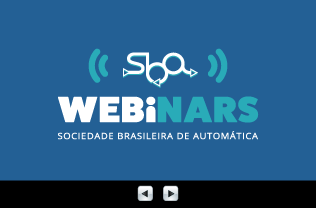Bolsa de doutorado em neuroengenharia e robótica de reabilitação na University of Queensland
The School of Information Technology and Electrical Engineering at the University of Queensland, Australia, invites applications for a PhD position in neuroengineering and rehabilitation robotics.
PROJECT DESCRIPTION
Loss of hand function significantly affects the quality of life of individuals with spinal cord injury and other neurological disorders. Among candidate interventions in these conditions, electrical stimulation is a potential technology to restore reaching and grasping function. Nevertheless, solutions proposed so far present limitations, such as limited muscle selectivity, varying motor response, or the requirement of an invasive procedure for placing the electrode interface.
In this thesis, the main goal is developing and evaluating control strategies for noninvasive electrode arrays to improve stimulation selectivity during functional grasping tasks. In addition to developing algorithms based on control and machine learning, the project also involves using wearable sensors to improving user control interface. Collaboration with researchers from health sciences and studies with persons with disabilities is expected. By the end of your graduate study, you will be an expert in neuroengineering with comprehensive skills in biomedical engineering, control, and machine learning.
SELECTION CRITERIA
* University degrees in biomedical, electrical, mechanical, mechatronics, computer engineering, or closely related disciplines.
* Experience in biomedical signal processing, real-time control, programming in Python and Matlab, and data analysis is required.
* Experience in human movement analysis, virtual reality, robotics, and previous research involving human subjects is desired.
* Interpersonal, organizational, and communication skills, creativity.
* Proficiency in written and oral English.
HOW TO APPLY
To be considered for this scholarship, please email the following documents to Dr Antonio Padilha L Bo (antonio.plb@uq.edu.au)
* Cover letter specifying how your experience and skills match the position
* CV including English proficiency level and publication list
* Academic transcripts of BSc and MSc degrees
* Contact information for at least two academic references. A support letter will be requested only if your application is considered
MORE INFORMATION
https://scholarships.uq.edu.au/scholarship/phd-scholarship-neuroprosthesis-restoring-grasping-function-using-noninvasive-electrical-stimulation
Informações
Encerramento: 31/03/2020 Site: http://scholarships.uq.edu.au/scholarship/phd-scholarship-neuroprosthesis-restoring-grasping-function-using-noninvasive-electrical-stimulation

Bruno Vilhena Adorno
Sócio desde 2012
Profissional
- Instituição:
- The University of Manchester
- Endereço Profissional:
- Department of Electrical and Electronic Engineering
School of Engineering
The University of Manchester
Sackville Street
Manchester M13 9PL
United Kingdom - Currículo Resumido:
- Bruno Vilhena Adorno obteve o título de engenheiro mecatrônico em 2005 e de mestre em engenharia elétrica em 2008, ambos pela Universidade de Brasília, e o título de doutor em sistemas automáticos e microeletrônicos em 2011 pela Universidade de Montpellier (França). Atualmente, é Senior Lecturer in Robotics (equivalente a Professor Associado) da Universidade de Manchester. De 2012 a 2020, foi professor do Departamento de Engenharia Elétrica da Universidade Federal de Minas Gerais (UFMG), onde foi co-fundador e co-líder do grupo de pesquisa Mecatrônica, Controle e Robótica (MACRO). Ele é membro sênior do IEEE, foi bolsista de produtividade em pesquisa do CNPq no triênio (2018-2021) e é o atual coordenador do Comitê Técnico de Robótica da Sociedade Brasileira de Automática (2017-2018 e 2019-2020). É autor ou co-autor de 17 artigos em periódicos e 35 em conferências / capítulos de livros. Ele é editor associado do IEEE Robotics and Automation Letters e do Journal of Control, Automation and Electrical Systems, também atua no corpo editorial da RSJ/IEEE International Conference on Intelligent Robots and Systems e do Congresso Brasileiro de Automática desde 2017. Seus interesses atuais de pesquisa incluem aspectos práticos e teóricos relacionados à cinemática, dinâmica e controle de robôs, com aplicações a manipuladores móveis, humanóides, sistemas de manipulação cooperativa, interação humano-robô e robótica de assistência.
- Lattes:
- http://lattes.cnpq.br/3363634987221133
- Endereço:
-
- Email:
- adorno@ieee.org

